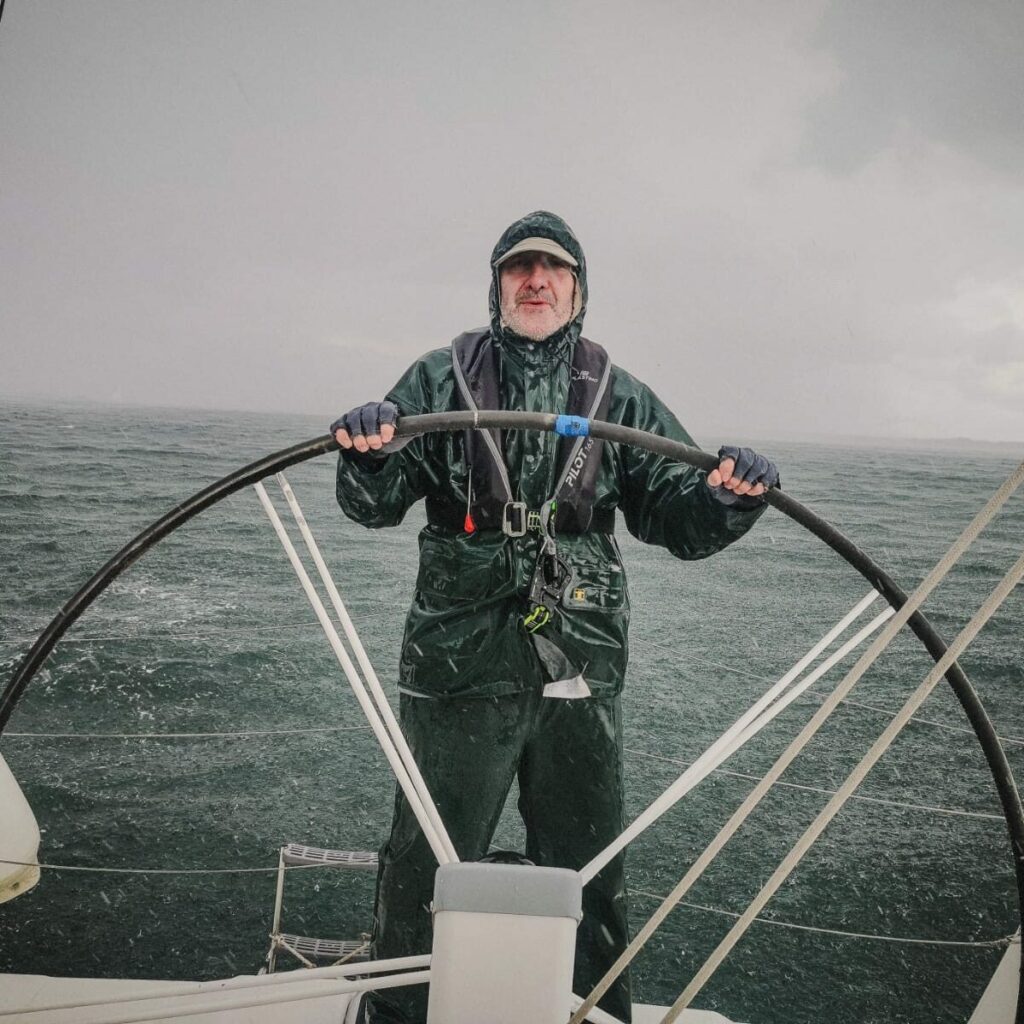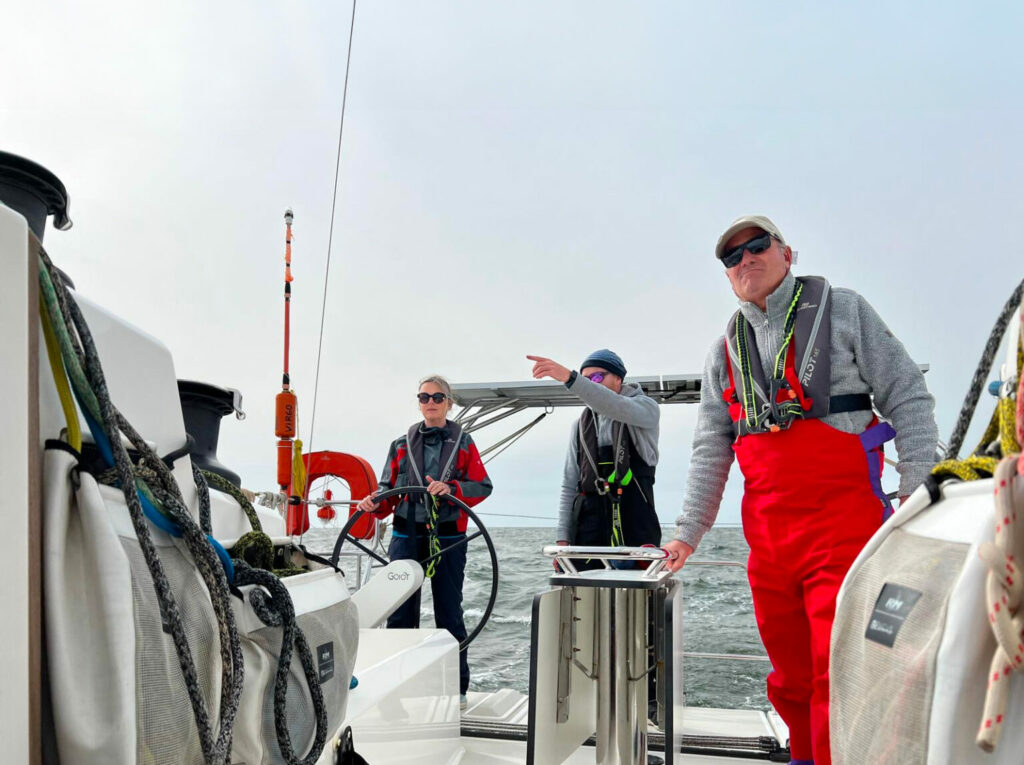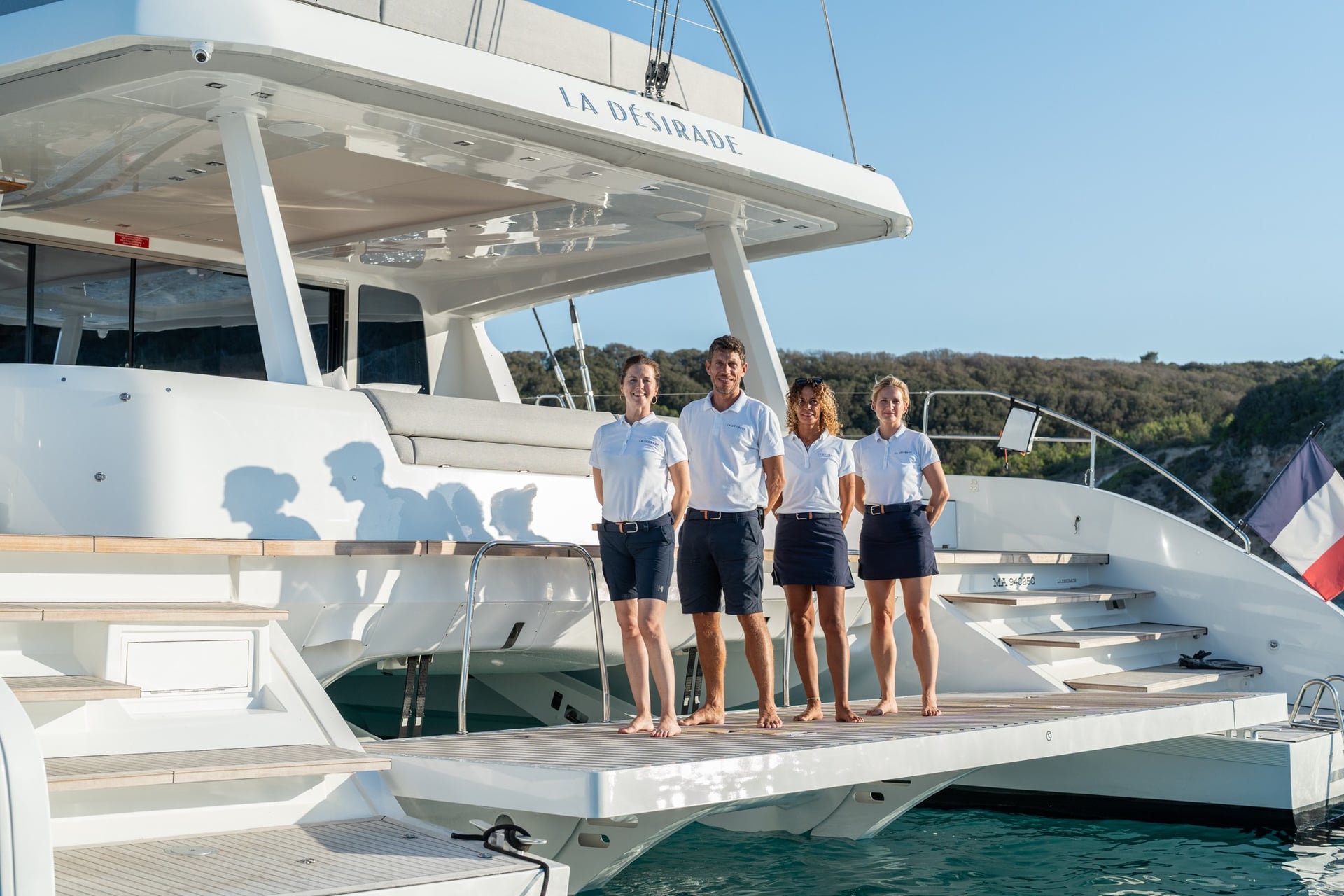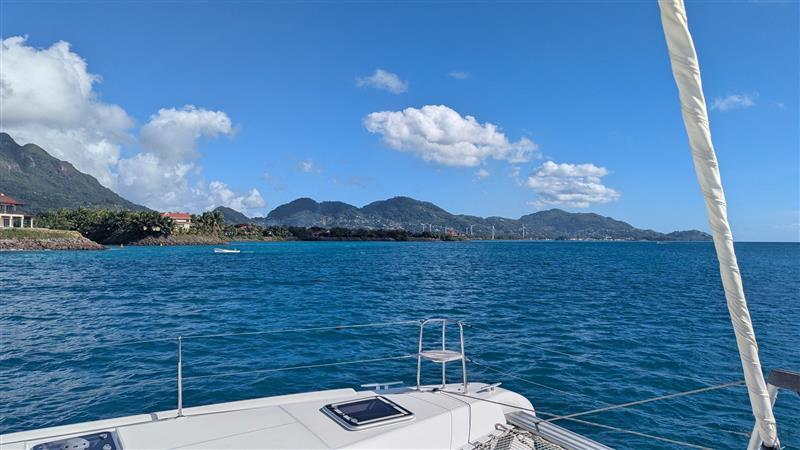More and more of you are embarking on sailing courses to improve your maneuvering skills under sail and gain in autonomy, before embarking on your own yacht charter.
To ensure that your sailing course is 100% successful, here are a few tips before you join your crew for a sporting and educational holiday.
Nautical equipment :
As with any sailing trip, appropriate clothing is an absolute essential. Boots and a jacket are compulsory. If possible, you should also have waterproof overalls or overtrousers to keep you dry upwind or in the rain, and deck shoes (or trainers with non-slip soles) to avoid slipping on the boat. Choose breathable clothes suited to the season, and remember to pack a fleece, as evenings are often chilly on a boat. And don’t forget sunglasses, sun cream and a cap. Why not wear reinforced sailing gloves to improve grip and prevent blisters?

For GlobeSailor customers, take advantage of the promo code when booking with our equipment partner Picksea. We have a big list of GlobeSailor booking advantages for our customers.
Life on board :
We recommend that you bring a small pillow, as cabins rarely have them. Don’t forget a warm duvet and a headlamp for getting around the boat at night or when sailing on night watches. Earplugs and a black-out mask may be useful if you are sharing a cabin or for a nap during the day. If you are prone to seasickness, remember to take anti-nausea or motion sickness medication (Mercalm®, Nausicalm®…). Finally, don’t hesitate to pack a few snacks to nibble on when you need them (cereal bars, almonds, raisins, etc.).
Teaching methods :
A course means learning! Thanks to your sailing instructor, you’ll be able to fill up on knowledge and come back with your neurons firing! We strongly advise you to take the time before the course to leaf through at least one reference book on learning to sail (e.g. Le Cours des Glénans) and bring it on board. This will allow you to compare your onboard training with the theory…
It may also be useful to bring a small notebook and pen to take notes or make sketches.

That’s it, you’re ready to cast off and fill up on nautical miles, have a great course!
Did you enjoy this article?
Do not hesitate to share it with the other trainees who may be on board with you!




